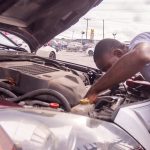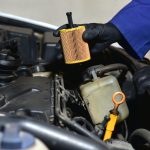Knowing how to properly maintain your car can save you money and keep it running smoothly. You can prevent unexpected breakdowns by being proactive and staying on top of your vehicle’s needs. This blog will help you explore the different types of car maintenance ignition cars need. Remember, a well-maintained car saves you cash and keeps you safe on the road.
Why Maintain My Car: The Importance of Car Maintenance
Making sure you take your car for regular checkups is important. It keeps it running smoothly and reduces the chances of randomly breaking down in the middle of the freeway. It also makes your vehicle last longer, saving you money in the long run by avoiding early replacement costs. Your car will also thank you with higher performance and fuel efficiency, saving you a lot of money in repairs.
Watch Out: Signs Your Car Needs Maintenance Done
Regular car maintenance is needed for your safety and your vehicle’s longevity. Here are some tell-tale signs that your car needs maintenance:
- Braking: Don’t ignore any problems with your brakes, as they are critical to your safety. Address any “squeaking” sounds immediately.
- Acceleration: If you notice a change in your car’s performance, getting an engine tune-up is essential to restore performance.
- Shaking: If you feel shaking when moving your car, it’s important to take it to a mechanic who can diagnose the cause.
- Unable to start: If your car has trouble starting, go to a professional mechanic to avoid a breakdown.
- Fuel Efficiency: Bad sensors or leaky fuel injectors might cause changes in gas mileage. It’s best to ask for a mechanic’s advice to rectify the issue for improved fuel economy.
- Shifting: Smooth gear shifts are essential for automatic transmissions. If you experience hard shifts and lurching, it might indicate an issue with your car’s transmission that needs immediate attention.
Rather than wait for these signs to become bigger problems, get your car regularly checked to make sure your car runs smoothly and reliably.
Car Maintenance To-Do List: Types of Maintenance Your Car Needs
Maximize your vehicle’s lifespan and performance by following a maintenance schedule. While this quick maintenance checklist would be apt for most cars, it’s important to remember that not all cars are identical when it comes to maintenance.
Needs Immediate Attention
- Engine Light – Don’t reset a check engine light until you have a mechanic run a diagnostic.
- Headlights/Taillights – Never drive around with busted lights. This is an easy way to meet with accidents and get yourself a ticket.
- Tire Pressure Light – The tire pressure monitoring system will notify you when the air pressure drops below the standard level. Make sure to check your tire air pressure regularly.
30 Day Check Up
- Oil and Coolant Levels
- Tire Pressure
- Windshield Wiper Fluid
- Lights: Keep an eye out for damaged fog, brake pads, turn signals, and parking lights.
90 Day Check Up
- Oil Filters – This is different for each car. Conventional motor oil engines require an oil change every 3 months or 3,000 miles. In contrast, those using synthetic oil can go up to 10,000 miles between engine oil changes. Most mechanics recommend replacing the filter during every oil change.
- Battery and Cables – Make sure that there is no fluid leaking and no rust in the batteries and cables.
- Belts and Hoses – Check for cracked engine belts and leaking hoses.
- Power Steering Fluid
- Wiper Blades – Replace any faulty wiper blades to ensure you’re safe during the monsoons.
180 Day Check Up
- Tire Rotation – Tire rotation helps extend the wear and tear of tire use.
- Battery Replacement/ Battery Performance Test – Run regular tests when your battery is three years old or older.
- Exhaust System
- Chassis Lubrication
Annual Check Up
- Engine Air Filter – Regularly changing your car’s cabin air filter can improve air quality inside your vehicle.
- Brake – Check your brake fluid levels, rotors, and brakes.
- Air Conditioning System/Antifreeze – The recommended time between coolant flushes depends on the vehicle and the coolant used. For silicated coolants, it is every two years or 30,000 miles. For extended drain coolant, it is every five years or 100,000 miles.
2 Year Check Up
- Ignition System – Ensure you get only the highest quality spark plugs, wires, and other electrical components. When you notice problems when starting your car, it’s time to check them.
- Transmission Fluid – Check your transmission fluid at regular intervals.
- Fuel Filter
Less Frequent Checkups
- Transfer Case Fluid
- Differentials Lubrication – Front and rear differentials require lubrication. Check them against your car manufacturer’s recommendations.
- Battery – While this is different for every car, it’s a good idea to replace your battery every five years. Old car batteries can pose various safety and reliability concerns.
Fixit With Us
At Fixit45, we believe in complete transparency when it comes to your vehicle’s needs. Our team of expert auto mechanics undergoes special training to ensure they are equipped to handle any and every type of service your car may need. We take pride in our ability to quickly diagnose the root of the problem and then repair it at the most affordable price possible. Whether you prefer to drive into one of our garages or call for a pickup, you can count on us to provide you with the highest level of service.
- Oil Change
- Brake Repair
- Wheels and Tyres
- Engine Repair
- Parts Replacement
- Comprehensive Inspections
- Regular Maintenance Services
- Diagnostics
- Wheel and Tyre services
- Battery and Electrical
- General Servicing
For more info, call us at 08061440051.






